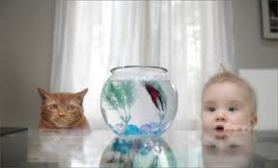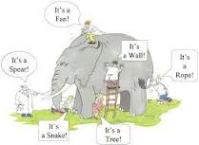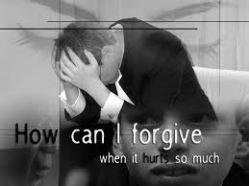“I do not see life as it is, I see life as I am” Byron Katie
When our wounds and fears determine our perspectives, and our perceptions perpetuate our wounds, we are caught in a vicious cycle. This cycle escalates conflict, both within us and with others.
One’s thinking and feeling-filters determine how we perceive situations, ourselves and those around us; they inform our judgements and response. When one’s filters are clogged with old assumptions and wounds, past beliefs are projected on present situations; communication becomes unclear, dynamics are created and patterns are perpetuated.
In other words, our thoughts create our reality; they become self-fulfilling prophecies.
The Backpack:
A friend of mine once said that whenever a new relationship was in its budding stages, he would symbolically and automatically pick up the emotional backpack he had previously stored in the cupboard and put it on, ready for the dance to begin. It sounded somewhat familiar …!
There are some backpacks however, that we are unaware of carrying; we may even be so used to them that we don’t take them off at all and they become a part of us. Carrying this weight alters our posture; it becomes our walk and stance in life, our experience and our perspective.
However, awareness is the first step towards change. Becoming aware means asking oneself clarifying questions, for example:
- What am I carrying in relation to my family, partner, colleagues and life as whole?
- What is in my backpack – what memories and interpretations are inside?
- Where and when did I add them; how do they serve me now?
- Why am I hanging on to them; are there things I can let go of and forgive myself and others for?
Judgements and labels: the lenses that inform our behaviour
Also in our backpack are the judgements we make about those around us based on first impressions, or on how we feel in ourselves when around them. These judgements are labels – “Jim is a bully”, “Lucy is two-faced” and so on.
Understanding the nature of labels can help us change our approach. Labels are based on:
- Our assumptions, fears and insecurities
- Generalizations
- Challenging the person and not the behaviour
Labels become the lenses, hearing aids and nerve endings through which we perceive that person. A word, a look, or action becomes proof of our assumption about them. Our behaviour will consequently mirror our perception. “John is a bully; he always belittles people. I need to show him that I can stand up to him as someone who is equal if not better than him.”
Judgements hook us into a dynamic of rigidity and blame with that person and we may find ourselves behaving differently with them. “I’m only like this with you/him/her …”
Blame, however, detracts us from exploring the wounds that person triggers in us and seeking to heal our old patterns.
Awareness of labels and judgements therefore opens our choice of response and changes dynamics.
Generalizations
Generalizations lead to exaggerations: “You always”, “You never”. These cause us to be blinkered to the bigger picture and carry the dynamic into the future.
One tends to generalise when they feel the need to defend and validate one’s position, but in so doing perspectives become tilted and fixed. Exploring generalisations can help break down assumptions and review our own perceptions and behaviour as well as those of another.
Doing so therefore helps us re-frame the situation from an Adult perspective; it moves us away from rigidity and blame, towards seeing the whole picture from the viewpoint of the present.
From where I’m standing:
A changed perspective can drastically alter our interpretation and experience of an image.
The Elephant: A group of blindfolded people describe an elephant through touch, without knowing what it is they are describing. Each one describes what they think they are touching, but what each describes is a perception based on their perspective. These people can then either cooperate to piece the puzzle together, or argue over the exclusivity of their personal truth. . .
Fixed perspectives and worldviews put our senses on alert; we convince ourselves that we are in danger of being hurt (again) which in turn leads us to adhere to our viewpoint even more. This keeps us stuck in a pattern of fear and reaction.
Wanting to be ‘right’, does not only relate to one’s perspective and the need for it to be heard, but also to one’s validity as a person.
The role of identity
If we over-identify with our beliefs and consider them to represent who we really are, then any attack on our worldview will feel like an attack on us as a person. This attitude can easily escalate a discussion into an argument as we seek to defend ourselves and protect our vulnerability. Blame can rapidly infiltrate the dynamic and result in fixed positions.
While it is true that personal values define us, we are not our beliefs; particularly those adopted in childhood from our environment and our own assumptions. Like the backpack, our beliefs benefit from being re-evaluated and for us to consider if what we are carrying still serves us.
Putting it bluntly, we need to sift the shit from the sugar from time to time!
Fact, interpretation, impact and intention
Sometimes facts are spiced with one’s interpretation of an event from the perspective of how it has impacted. Such cases can lead one to believe that the impact was intended.
However, this line of thinking has a four-fold effect, it:
- Escalates arguments
- Confuses the issues
- Attracts labels and generalizations
- Denies true feelings
For instance: John and I have a meeting scheduled at 1pm. That is the fact. When he doesn’t show up, I conclude that it’s because he is an arrogant bully who wants to ‘make me’ feel small, hurt and angry. I conclude that John never turns up to appointments because he is arrogant, and a bully who enjoys hurting others. I may or may not tell him how I feel so as not to show my vulnerability and may decide to have it out with him, avoid him or say nothing.
We cannot know what another intended without checking out the facts and exploring our own interpretation.
Asking questions
As an acronym the word ‘fear’ stands for: False Evidence Appearing Real. I love that!
It is therefore important to explore the evidence and why it appears as such to us. A reality-check of questions enables us to unpack our fears into bite-size chunks, through which we explore our perceptions, misperceptions and assumptions more easily.
Doing so can increase understanding and allows us to approach the situation from a different perspective.
Conclusion
In order to break patterns of behaviour we need to explore our perspective and the reasons behind it, including its relationship to our sense of self.
Truth may not change, but our perception of it can. Putting ourselves in another’s position can give us many insights and may alter our interpretation, decision, behaviour and ultimately outcome.
Exploring an alternative worldview requires us to shake up our own familiar ground. While fears may arise and leave us feeling vulnerable, it is exactly this sense of vulnerability that fosters true dialogue and understanding.
I recently came upon this quote from Lao Tzu that says:
Watch your thoughts; they become words.
Watch your words; they become actions.
Watch your actions; they become habits.
Watch your habits; they become your character.
Watch your character; it becomes your destiny.
We have a choice about whether or not we carry our backpack. The question is, how would we feel if we took it off forever?


